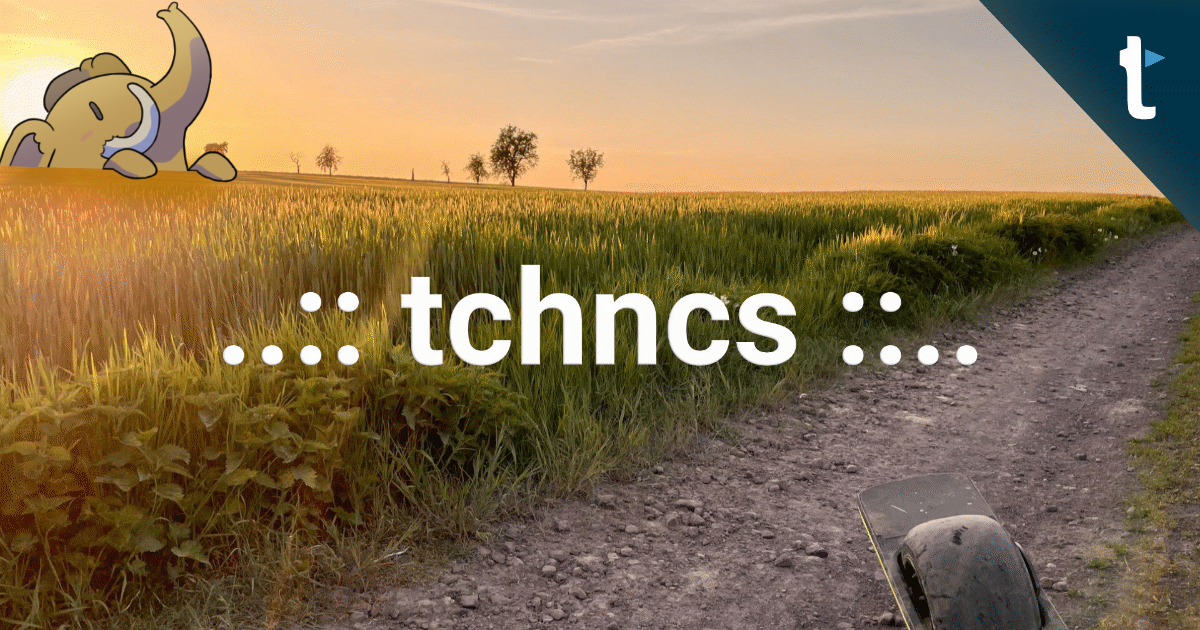Ariel (🐿 arc)<p>Spoke too soon. Damn context object has no cache initialized so can't run a reconcile. How in the heck am I supposed to write a controller that can't check all the custom resources it's managing? This seems basic?</p><p><a href="https://eigenmagic.net/tags/KubernetesDev" class="mention hashtag" rel="nofollow noopener noreferrer" target="_blank">#<span>KubernetesDev</span></a> <a href="https://eigenmagic.net/tags/k8s" class="mention hashtag" rel="nofollow noopener noreferrer" target="_blank">#<span>k8s</span></a> <a href="https://eigenmagic.net/tags/kubernetes" class="mention hashtag" rel="nofollow noopener noreferrer" target="_blank">#<span>kubernetes</span></a></p>
Recent searches
No recent searches
Search options
Only available when logged in.
social.tchncs.de is one of the many independent Mastodon servers you can use to participate in the fediverse.

A friendly server from Germany – which tends to attract techy people, but welcomes everybody. This is one of the oldest Mastodon instances.
Administered by:
Server stats:
3.8Kactive users
social.tchncs.de: About · Profiles directory · Privacy policy
Mastodon: About · Get the app · Keyboard shortcuts · View source code · v4.3.7
#kubernetesdev
0 posts · 0 participants · 0 posts today
Ariel (🐿 arc)<p>> After receiving a discovery response, the Kubernetes API server automatically registers all available types for this API group. Although this isn't considered common practice, you can implement logic that dynamically registers the resource types you need in your Kubernetes cluster.</p><p>Woa, this could be huge for the CRD management problem with operators and Helm</p><p>I didn't even know the API aggregation layer existed</p><p><a href="https://kubernetes.io/blog/2024/11/21/dynamic-kubernetes-api-server-for-cozystack/" rel="nofollow noopener noreferrer" translate="no" target="_blank"><span class="invisible">https://</span><span class="ellipsis">kubernetes.io/blog/2024/11/21/</span><span class="invisible">dynamic-kubernetes-api-server-for-cozystack/</span></a></p><p><a href="https://eigenmagic.net/tags/KubernetesDev" class="mention hashtag" rel="nofollow noopener noreferrer" target="_blank">#<span>KubernetesDev</span></a> <a href="https://eigenmagic.net/tags/Kubernetes" class="mention hashtag" rel="nofollow noopener noreferrer" target="_blank">#<span>Kubernetes</span></a> <a href="https://eigenmagic.net/tags/k8s" class="mention hashtag" rel="nofollow noopener noreferrer" target="_blank">#<span>k8s</span></a></p>
Ariel (🐿 arc)<p>Man this kube-builder thing is a LOT of machinery for something pretty simple I'm trying to make. Can't even get it to run a reconciliation loop on startup cause it's all buried. Will check the docs more thoroughly tomorrow.</p><p><a href="https://eigenmagic.net/tags/k8s" class="mention hashtag" rel="nofollow noopener noreferrer" target="_blank">#<span>k8s</span></a> <a href="https://eigenmagic.net/tags/kubernetes" class="mention hashtag" rel="nofollow noopener noreferrer" target="_blank">#<span>kubernetes</span></a> <a href="https://eigenmagic.net/tags/KubernetesDev" class="mention hashtag" rel="nofollow noopener noreferrer" target="_blank">#<span>KubernetesDev</span></a></p>
Ariel (🐿 arc)<p>If you're writing a controller, and you want to essentially shell out to arbitrary code and get the return/output.</p><p>Does it make sense to run a Kubernetes `Job` resource?<br>Can you even retrieve the output of that?</p><p>Does it make sense to embed a WASM interpreter and pull OCI WASM artifacts to run? That's a lot of extra responsibility...</p><p>I suppose I could shell out and rely on whatever's in the container/pod context of the controller.</p><p>Perhaps I should narrow the scope of things it can do instead of trying to hack it like this in the first place?</p><p><a href="https://eigenmagic.net/tags/k8s" class="mention hashtag" rel="nofollow noopener noreferrer" target="_blank">#<span>k8s</span></a> <a href="https://eigenmagic.net/tags/Kubernetes" class="mention hashtag" rel="nofollow noopener noreferrer" target="_blank">#<span>Kubernetes</span></a> <a href="https://eigenmagic.net/tags/KubernetesDev" class="mention hashtag" rel="nofollow noopener noreferrer" target="_blank">#<span>KubernetesDev</span></a></p>
ExploreLive feeds
Mastodon is the best way to keep up with what's happening.
Follow anyone across the fediverse and see it all in chronological order. No algorithms, ads, or clickbait in sight.
Create accountLoginDrag & drop to upload
